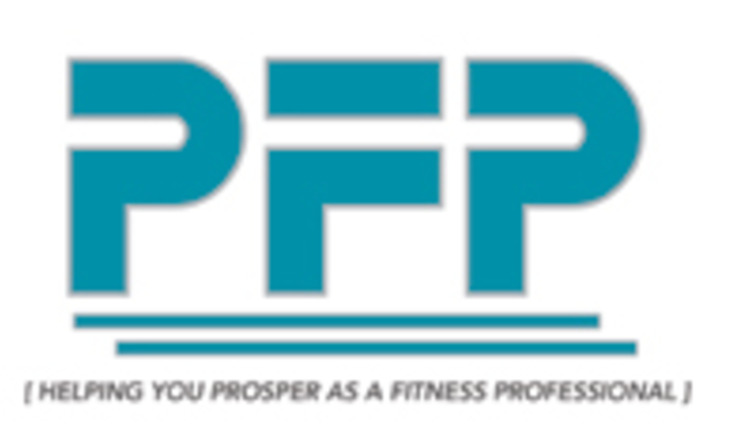Wasting time and money is never a good feeling. Protect your precious time by planning your academic calendar and carefully choosing continuing education units (CEUs) and continuing education credits (CECs) that will produce a return on your investment.
Checklist for the Perfect Course:
1. Does it provide specific information and tools that the trainer can use immediately or with additional training? Information without application is a waste of time.
2. Does it provide CEU/CEC credit towards your certification with NSCA, ACSM, ACE, NASM, ISSA, AFAA or BOC-NATA? However, do not allow CEU credit to be the limiting factor, if this specialized knowledge is pertinent to the success of your business or your niche. Some certifying agencies do not provide CEU credit for business courses. This should not deter you from taking those valued business courses that are very personal trainer-specific.
3. If the course is not CEU/CEC credit-approved, is it still important? When there is a hole in your skill set, it's just as important! When you construct your academic plan, include a section entitled "Critical Success Skills." Classify all your skills as WANTS (will enhance your success) or NEEDS (will enhance success and will prevent failure). For every skill that you circle "NEED," pursue that education, regardless if there is CEU/CEC credit or not. Survival is more important than 0.8 CEUs. Here's an example of a WANT/NEED checklist:
a. Professional Skills Requirements
i. Public Speaking: Want or Need?
ii. Computer/Internet: Want or Need?
iii. Sales and Marketing: Want or Need?
b. Technical Skills Requirements
i. Kettlebell training: Want or Need?
ii. Functional training: Want or Need?
iii. CPR/AED/First Aid: Want or Need?
4. Is the CEU/CEC presented by a recognized Subject Matter Expert (SME) who possesses not only academic knowledge but practical application knowledge?
5. Does the CEU fit your academic plan? Do you have an academic plan? Are you randomly picking CEU/CEC courses merely to satisfy your certifying agency requirements? Don't pick CEUs like you pick socks out of a sock drawer with the lights off, or you're sure to end up with a pair that doesn't match. Research your "dream job" or "ideal niche," and construct an education plan and goal.
6. Is the CEU provider recognized by the certifying body to offer CEU/CEC credit? Well-known and trusted continuing education provider organizations are required to register with the certifying agencies to ensure that you receive CEU/CEC credit.
7. Did you pick desperation CEUs, those "whatever" CEUs needed to save your soon-to-be-expired Certified Personal Trainer certificate? It is sad that a trainer would squander time and money for a CEU course whose only purpose was to punch his/her CEU dance card.
8. Is this a quality CEU? A quality course includes:
a. Advance information (i.e. a course outline, an online or hard copy text)
b. Specific goals outlining participant benefits after having attended the course
c. Ancillary materials (DVDs, charts, online resources, reference materials)
e. Reliable administration, such as enrolling for the CEU, ensuring timely delivery of CEU credit, providing beneficial affinity programs and group discounts
f. Discounts on ancillary, related materials for attending the seminar
g. Solid background information on the research, science and the results behind the presentation — a good CEU should not be a "sales job"
Online vs. Event-Based
Too often, someone takes a CEU course online to save time and money. Would you take a $19.99 blood test that only gave you half the results and none of the feedback because it was cheaper than a $50 blood test that provides results and an action plan? Keep these two things in mind:
· Bio-feedback: I provide you information and demonstration; you provide me information and subsequent demonstration. We interact. We practice. We fine-tune. Interaction is the key component, and this cannot be accomplished online.
· Rule of thumb: If spatial relationships, bio-feedback, three-dimensional objects and their interaction and active questioning and answering are required to truly learn the information, practice the technique and apply the methodology in order to truly master the skill, then online education is not appropriate. You cannot learn to be a personal trainer online no more than you can learn to play golf online. You can learn to pass a test, but you cannot learn, apply and master the skill. The interaction and bio-feedback is what's key, not simply the acquisition of the information and regurgitation of that information to a blank space in an exam.
Where to Find the Best Courses
I love the phrase, "Thank God that Al Gore decided to invent the Internet before he decided to save the world" (pardon the political humor). Research your certifying agency's website; NSCA, NASM, ACE, ACSM all post-authorized CEU/CEC courses. Research what's being offered in your geographic or specialty area. Special note: If the certifying agency lists the event on their website, you can feel comfortable that they have validated the speaker's credentials and the integrity of the course. While it's no guarantee that the CEU will be great, it's a good sign that the academic and the speaker quality meet specific requirements.
CEU/CEC Resources
www.acefitness.org/symposium
ACSM Health & Fitness Summit
www.acsm.org
Balanced Body Pilates
www.pilates.com
Can-Fit-Pro (Canada)
www.canfitpro.com
C.H.E.K Institute
www.chekinstitute.com
Club Industry
www.clubindustryshow.com
DCAC Fitness Conventions
www.dcacfitness.com
ECA World Fitness
www.ecaworldfitness.com
Exercise ETC. Inc.
www.exerciseetc.com
FiTOUR
www.fitour.com
Fitness Resources Seminars
www.fitnessresourcesseminars.com
GMP Fitness
www.personaltrainereducation.com
IDEA Fitness Fusion Conferences
www.ideafit.com
IHRSA Meetings & Trade Shows
www.ihrsa.org
NASM
www.nasm.org
NFPT
www.nfpt.com
NSCA Personal Trainer Conferences
www.nsca-lift.org
Perform Better Functional Training Summits
www.performbetter.com
Power Systems Total Training Seminars
www.totaltrainingseminars.com
SCW Mania Events
www.scwfitness.com
What's Hot? Our Survey Says:
Group X: HOT — Group anything is hot if only to accommodate the faltering economy. Three senior clients paying $30 is more economically feasible than one person paying $65 hourly. Learn Group X. Learn choreography. Learn how to watch for individual trouble signs in a group environment. Learn the art of boot camps, perhaps the fastest-growing segment of personal training today.
Functional Training: HOT — Sometimes it's a good idea to get your client out of the weight room and away from fixed-motion equipment. Do different stuff. If it helps your client perform what he or she does on a daily basis with more efficiency, in a safer manner and while addressing all the basic components of strength, endurance, flexibility, power, coordination and balance — that's functional.
Road Warrior Training: HOT — We're a mobile society, so tap that market! A person's waist line is directly proportional to their travel and living expense account.
What's Required?
It's what you need but you do not necessarily want to do because "it ain't no fun," as we say in Georgia. Things every trainer needs are:
CPR/AED/First Aid recertification
Fitness Assessment and Analysis
Legal/Policy Issues in personal training
Training in your specialty area, such as training the older client
Sales/marketing/business skills
As the saying goes (this is paraphrased without permission), "You can't always get what you want, but if you try sometime, you just might find [you get the continuing education] that you need."
Philippe Ray is the President/Owner of NPTI Colorado (www.NPTIColorado.com), Fitness Resources (www.FitnessResourcesSeminars.com) and the Personal Best Fitness Center (www.PersonalBestDenverWest.com). For more information, call 877.215.2643.











